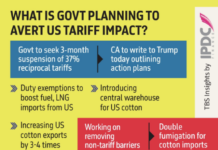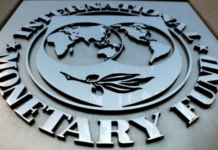A deep-sea port may not be viable for Bangladesh as big ships are unlikely to come in here diverting from the main shipping route, an expert said yesterday.
“Chittagong does not fall on the main shipping route from Asia to Europe. You are in the Bay of Bengal. So it is unlikely that the big ships will come in,” said SS Teo, managing director of Pacific International Lines (Pte) Ltd, the world’s 12th top containership operator.
Ships will go via Suez Canal, Colombo, Singapore, Hong Kong and China, he said. “That’s why, most of the cargos from Bangladesh are taken by feeder vessels to Colombo and Singapore.”
Teo, also chairman of Singapore Business Federation (SBF), the apex business chamber of Singapore, shared the view in an interview with The Daily Star at Sonargaon Hotel. He was leading a business delegation from Singapore.
Teo said Bangladesh would be a very good market for Singaporean companies and the objective of the visit was to introduce the market here. “Hopefully they will come here again to form joint ventures with Bangladesh companies,” he said.
Replying to a question, Teo, who started his shipping career in Singapore in 1979, said Bangladesh has been talking about a deep-sea port for many years. “Of course, you can try to build a deep-sea port to attract big ships. But big ships are unlikely to divert.”
“In reality, Chittagong is not on the main shipping route. The same is the case for Myanmar or even Kolkata,” he said, citing that the length of a bigger ship would be almost 400 metres and its capacity would be 20,000 TEUs.
He said most of the shipments taking place in Bangladesh are through feeder vessels.
“But feeders are getting bigger and bigger to bring the costs down. So, I think you need to build bigger port, maybe bigger than the Chittagong port and smaller than the deep-sea port,” said Teo.
“Deep-sea port is good to have but it is costly,” he said, “Infrastructure is a very long term investment. So, you have to study carefully.”
He said there is good prospect in Bangladesh, especially in power and energy, education, construction and engineering and fast moving consumer goods. “There are many business opportunities. There are many power projects coming now and Singaporean companies can participate,” he said.
He said Singapore was a very built-up city and it could help Bangladesh in urban planning and port development.
He said there are many logistics companies in Singapore who are doing business around the region. And as Bangladesh develops, it needs to bring down logistics costs, he said.
Teo said Bangladesh has successfully attracted investment in garments industry. As the country moves up the value chain to make more high value products, it should focus on improving logistics, he said.
“If your logistics does not follow, your costs advantage of cheaper land, cheaper labour will be eroded. So, I think the government needs to look for a long-term plan for the development of the Chittagong port,” he said, stressing the need for resolving road congestion issues, particularly for trucks.
He also talked about the northeastern Indian states known as Seven Sisters, Sikkim and Bhutan, saying goods could be moved to these regions through the Chittagong port at a lower cost than what it took for transporting from Kolkata.
“So these are opportunities not only for Bangladeshi companies but also for foreign companies,” he said, suggesting easing congestion to bring logistics cost down.
He said logistics cost was very high as the volume of trade had increased manifold. The government needs to have a total new way of thinking about improving logistics, he said, citing that Singapore has certain expertise, which they can offer.
He suggested that the government simplify procedures to attract foreign investment.
“You have to make it simple, fair and consistent. I think those are important and I am sure the government knows about it and is working towards it,” he said, stressing the need to ensure transparency, fairness and simplicity.
Source: New Age









